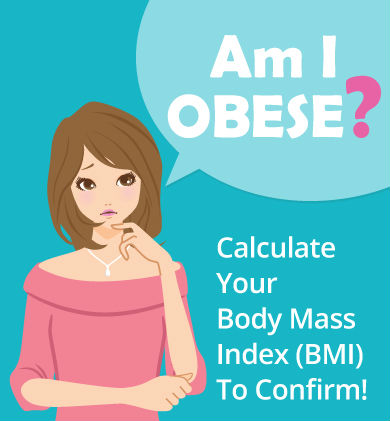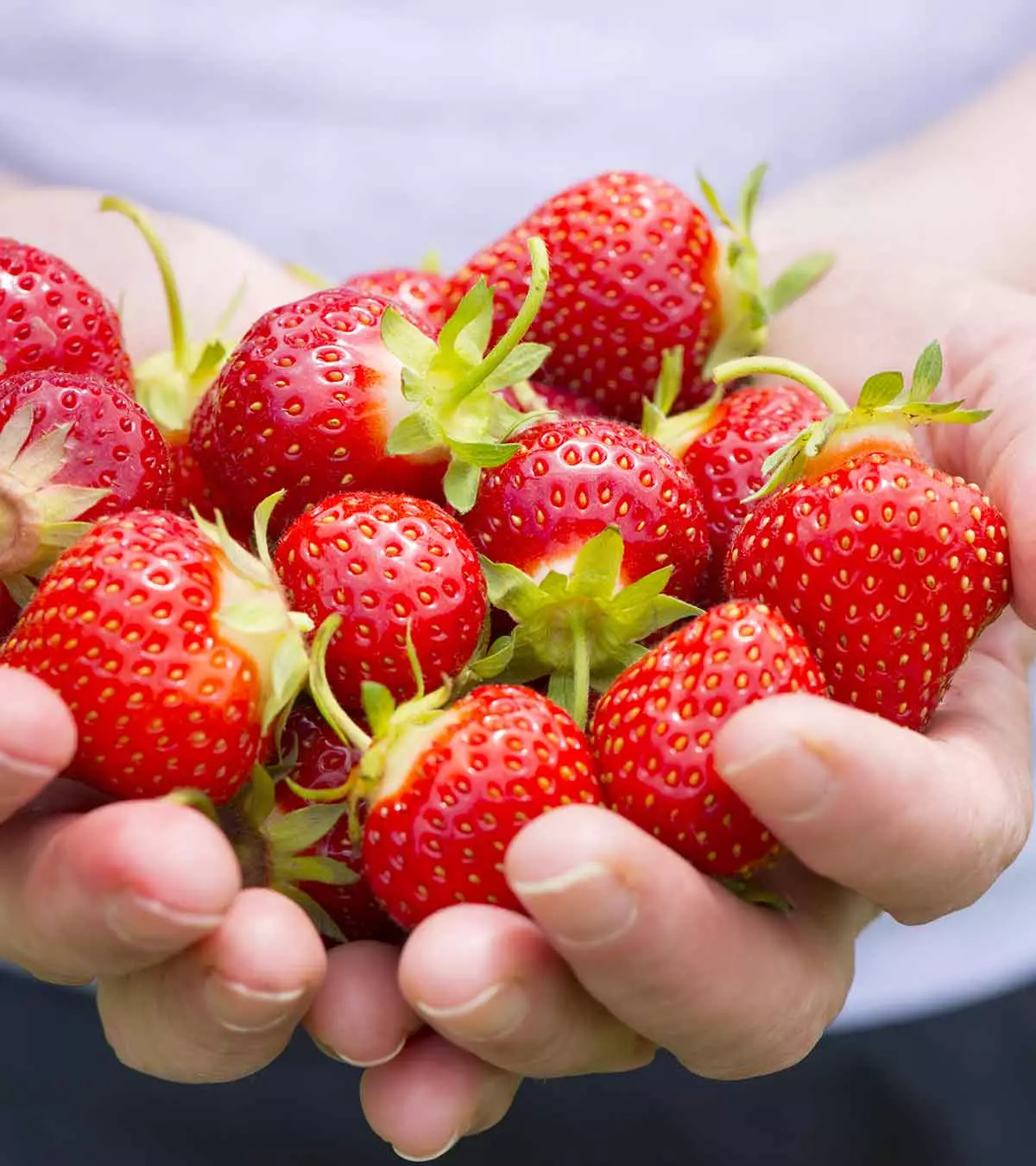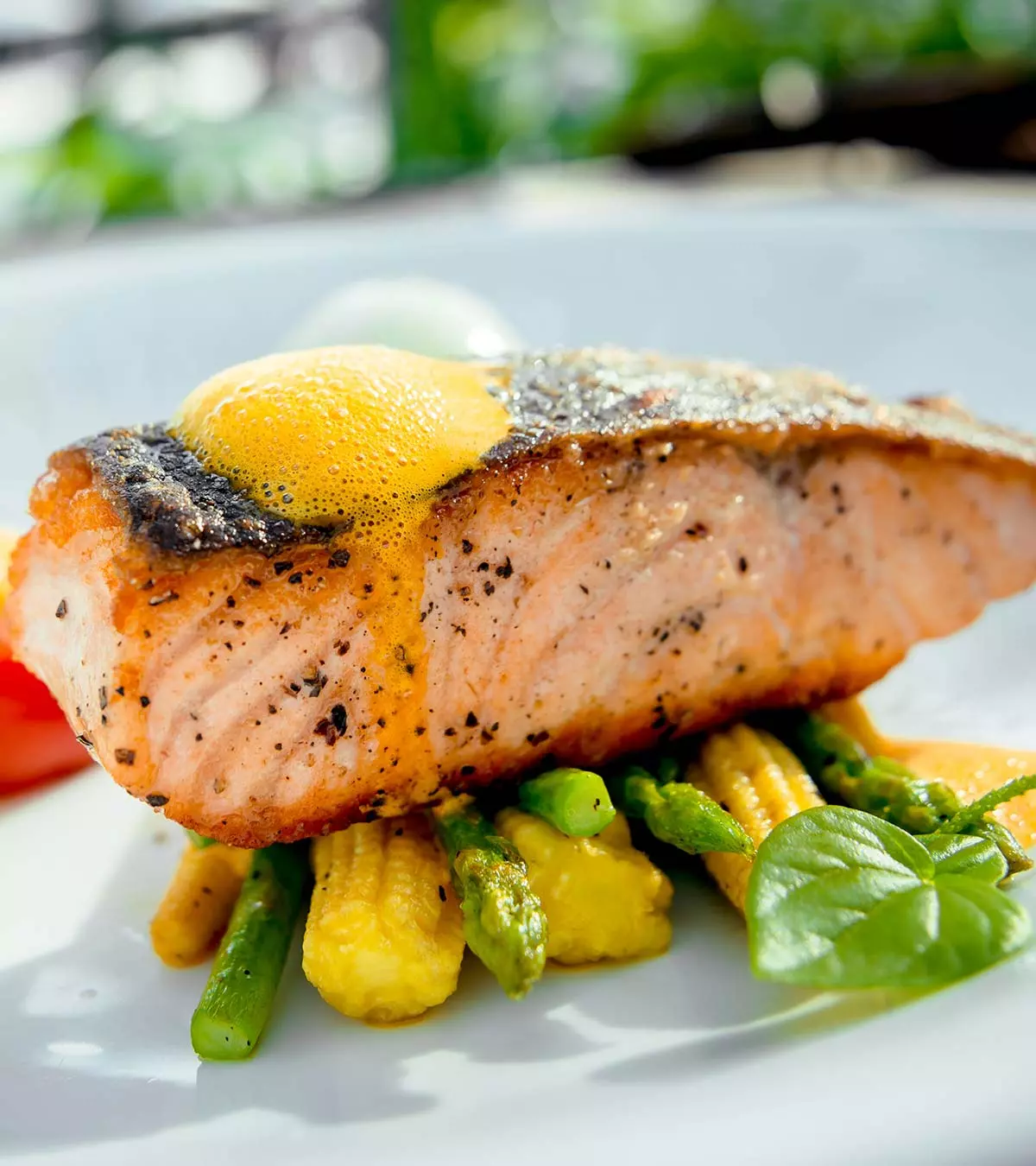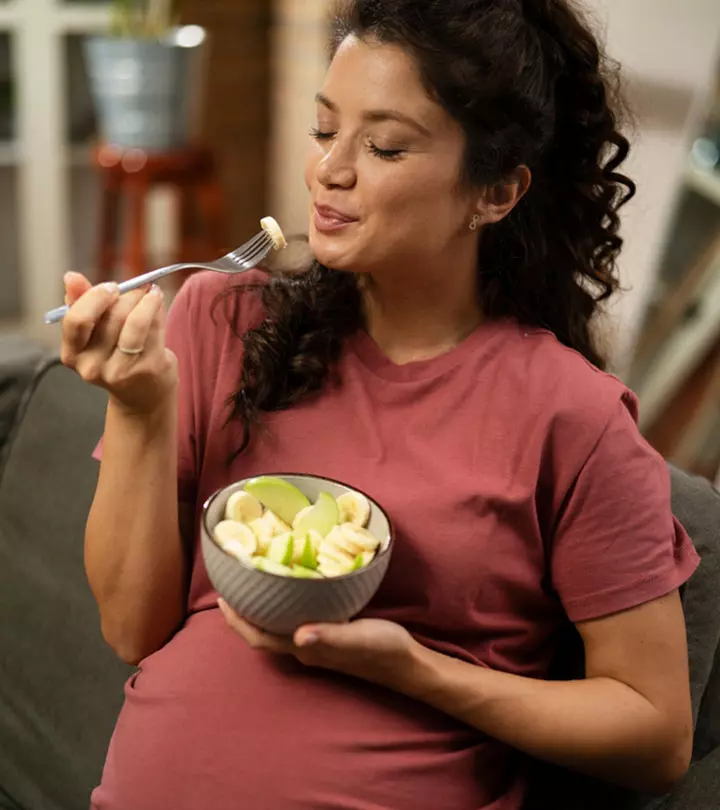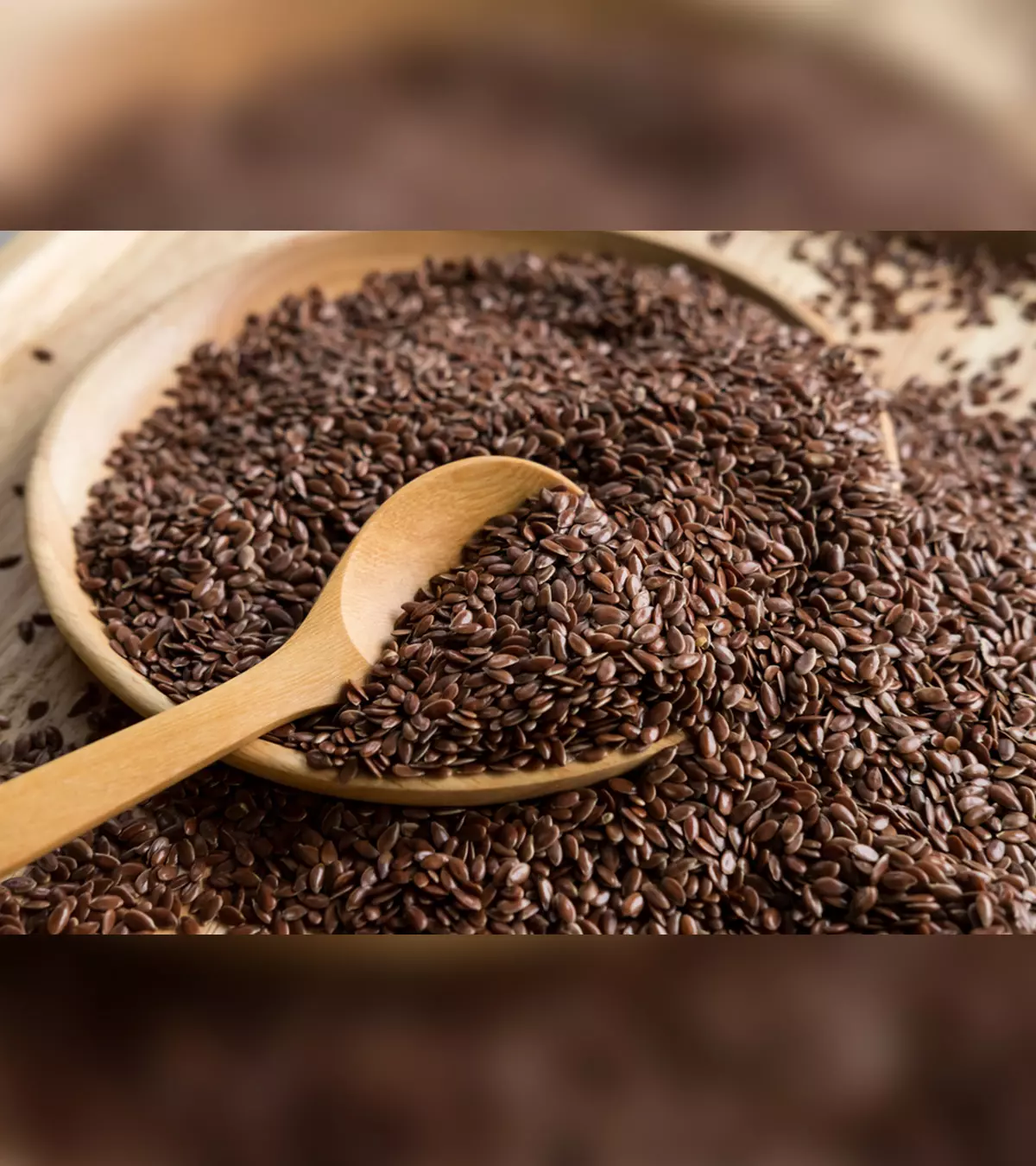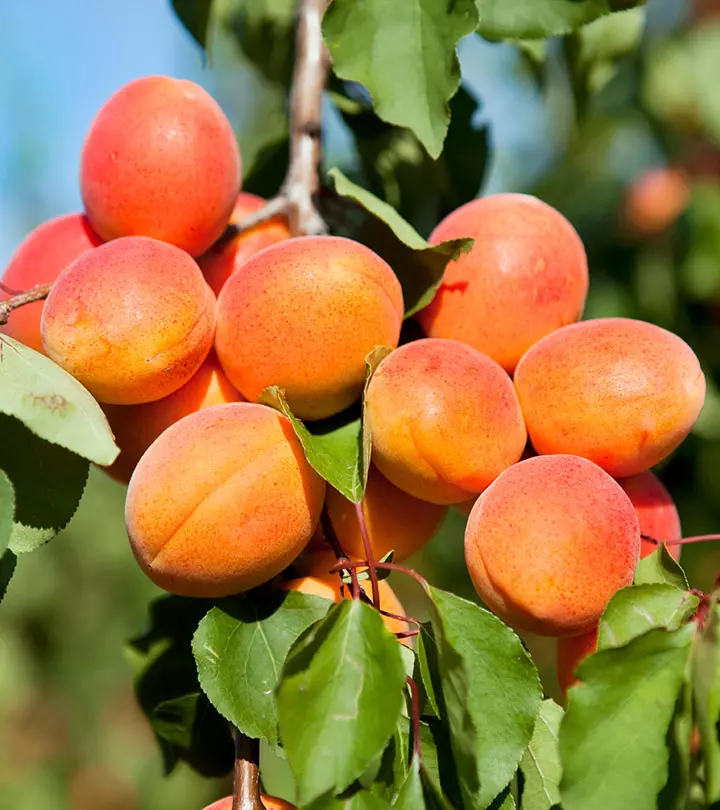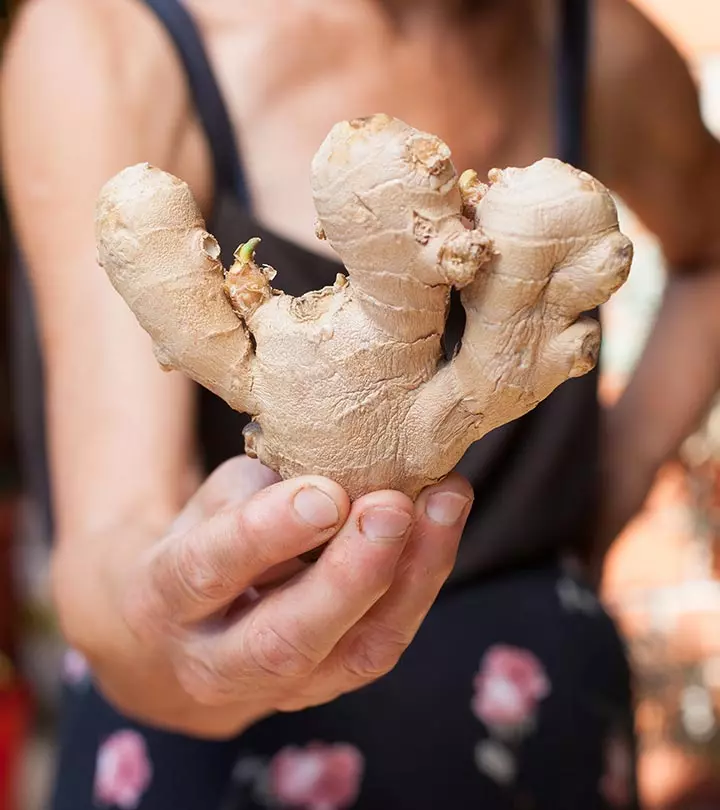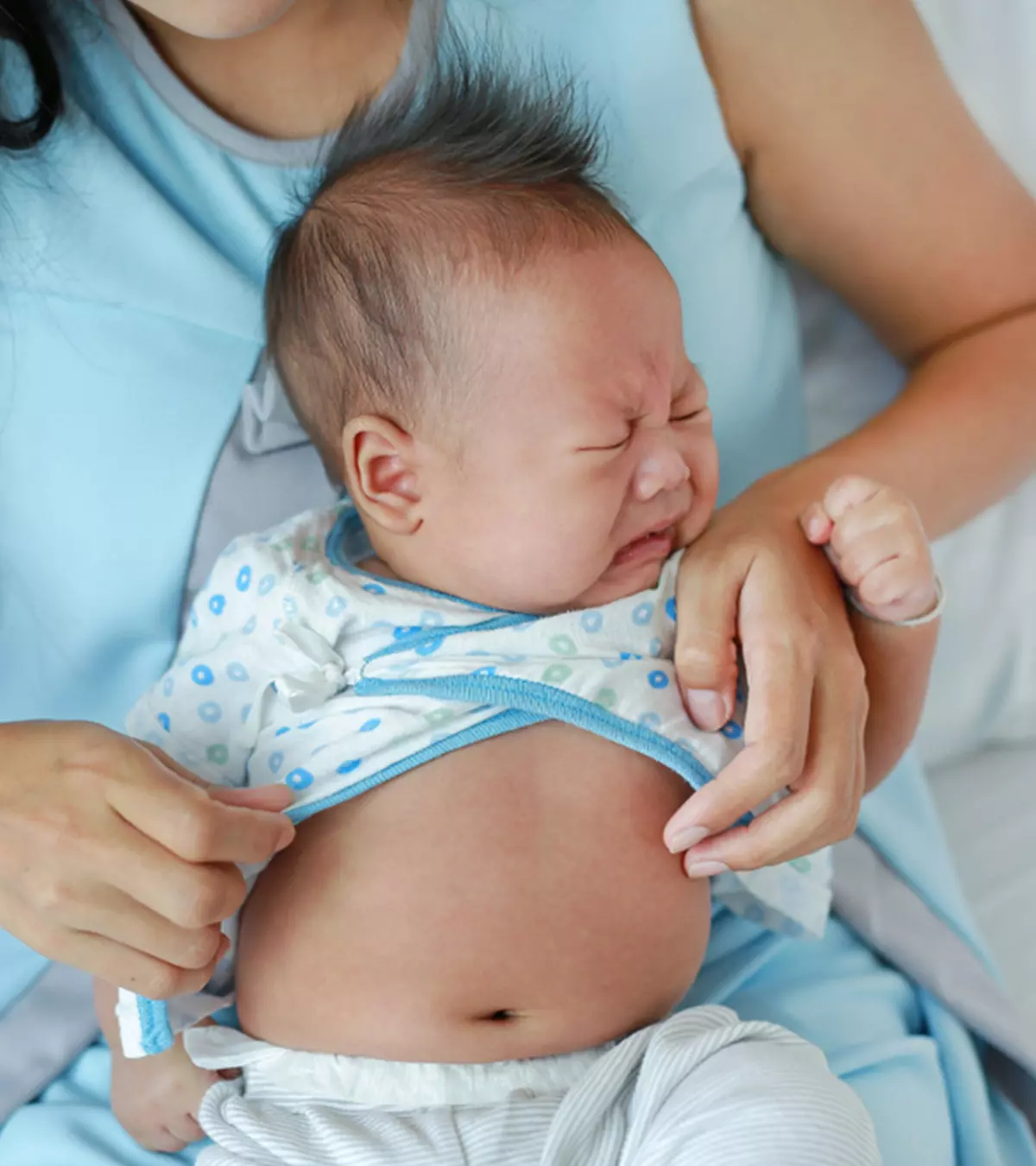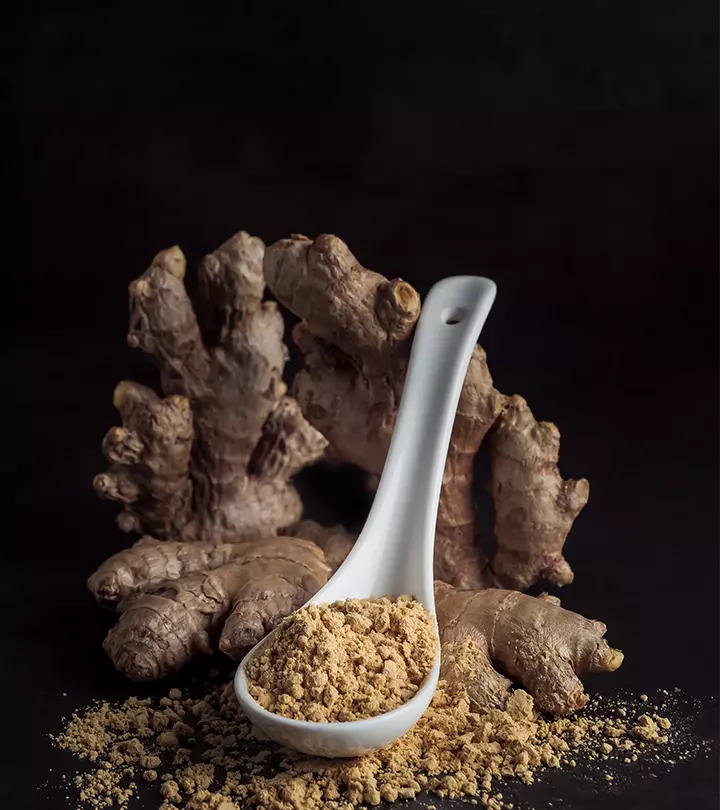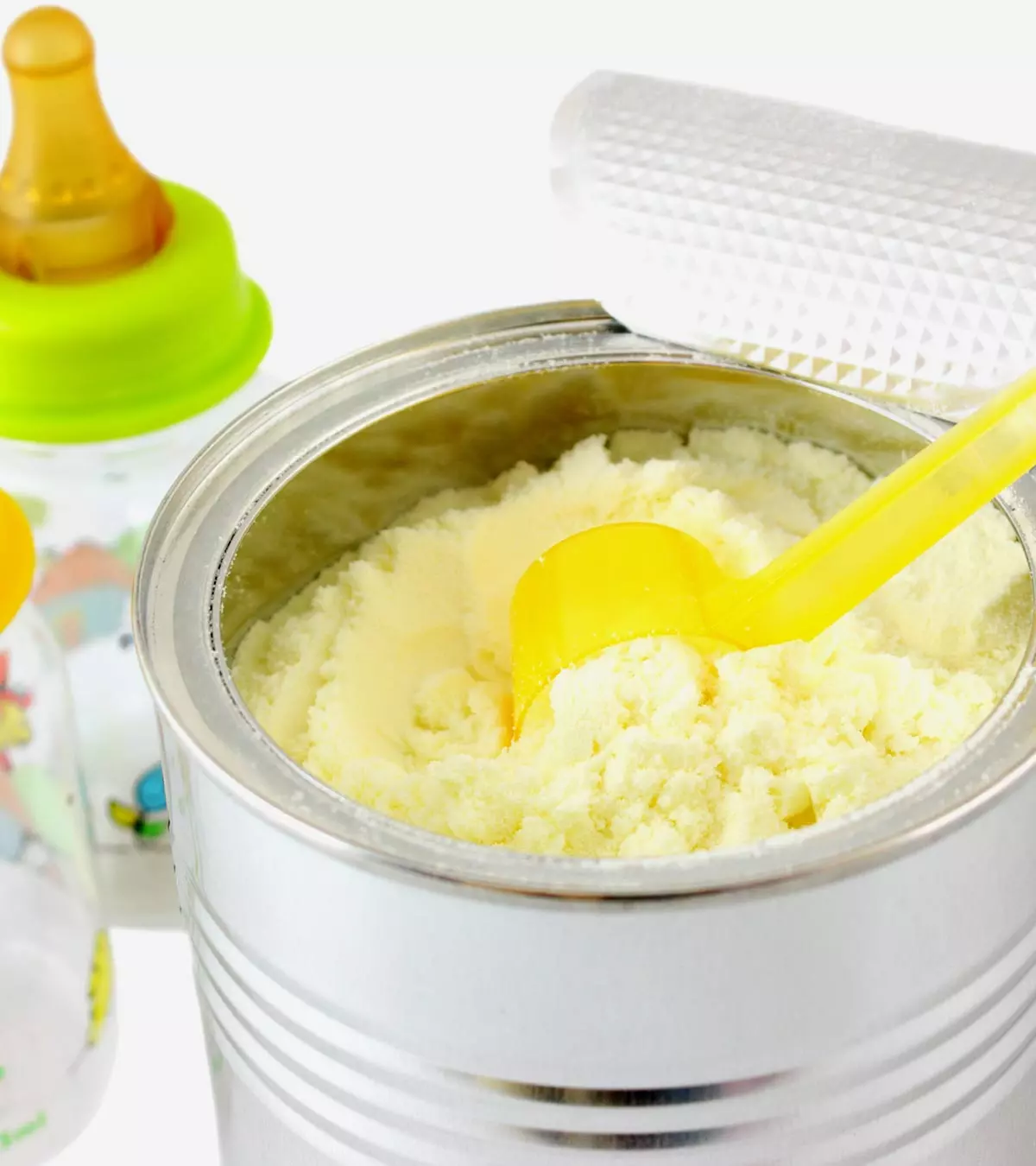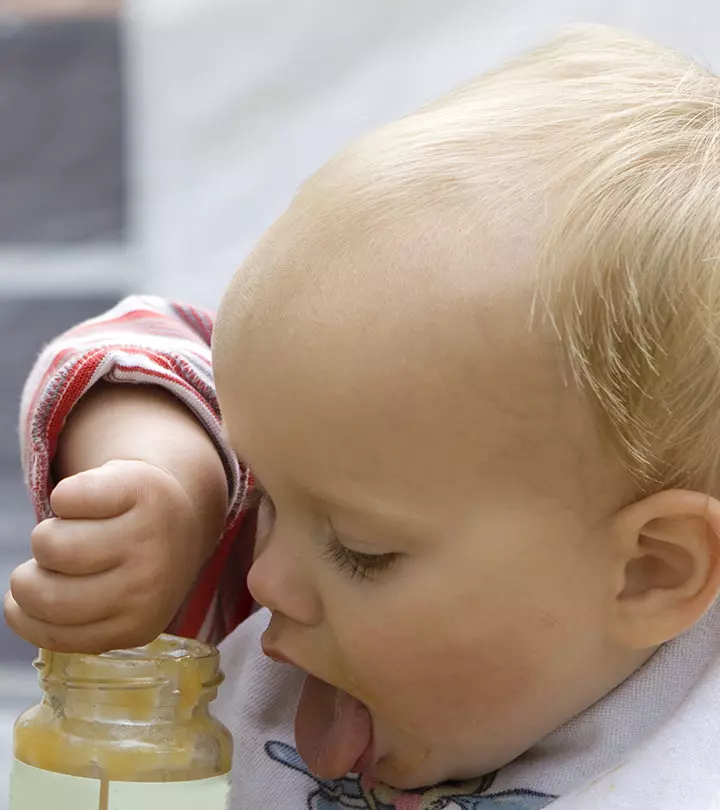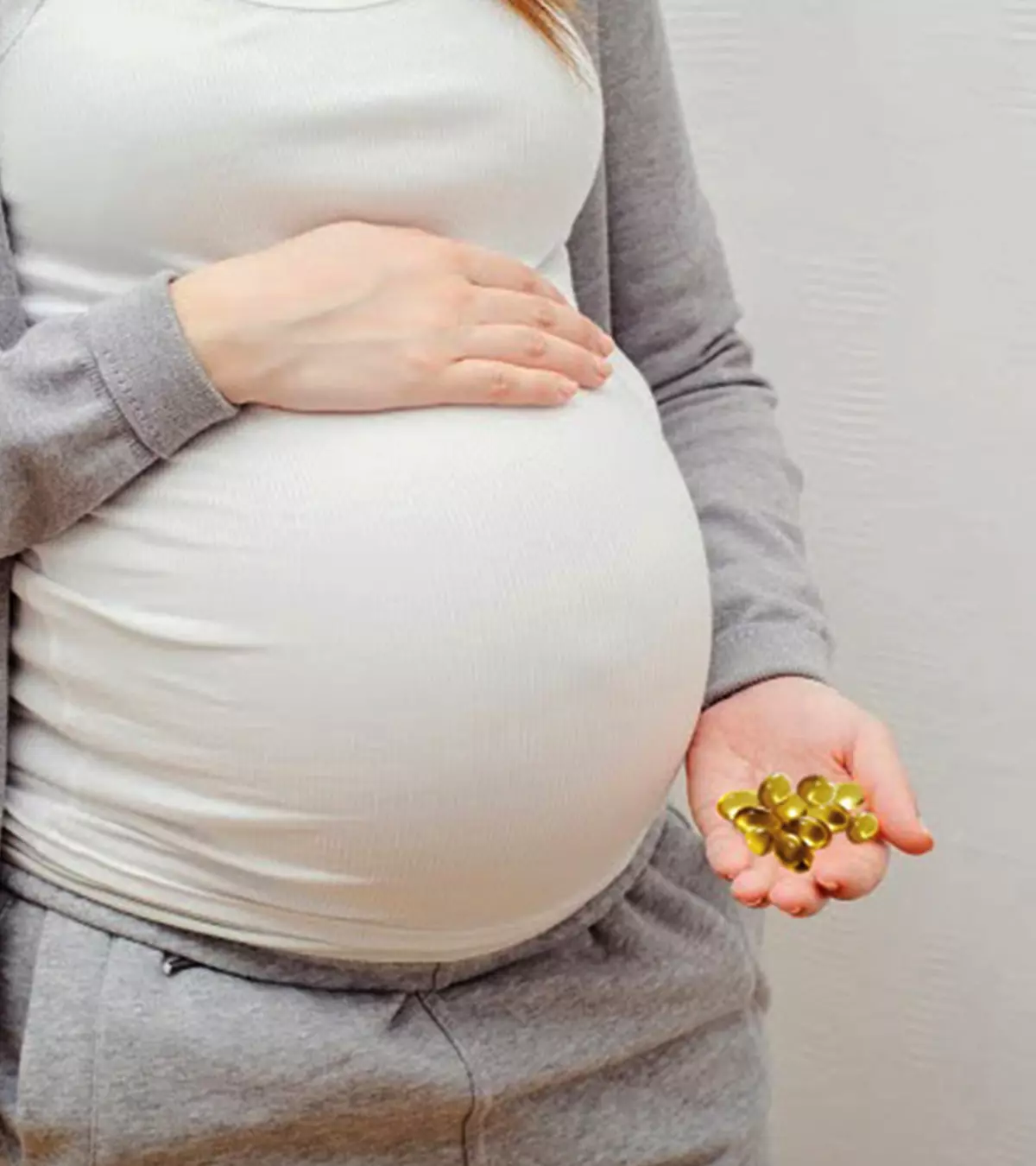
Image: iStock
A post-pregnancy diet is as important as your pregnancy meals. The nutrients that you consume are what your baby gets through your breast milk. Therefore, the food that you eat during the postpartum period should not only help you lose the extra weight but also provide the right nutrients to help you regain your strength and energy and recover
Thus, knowing the right foods to eat during this period is crucial for your health and your baby’s health. A well-balanced diet can help brighten your mood and improve your overall well-being. Read on as we have compiled a list of foods to help you during this crucial phase.
Key Pointers
- Your post-pregnancy body requires an additional 300 calories per day, similar to during pregnancy.
- Cutting down on carbs to lose weight can impact milk production and make you feel lethargic.
- Lean meat, such as red meat, is a good source of high-quality protein, iron, zinc, and vitamin B12, which can boost overall health.
- Hydration is essential to maintain milk production and energy levels.
- It is best to avoid oily, spicy, gas-producing foods, caffeinated drinks, nicotine, and alcohol.
What To Eat After Delivery?
After giving birth, new moms require a balanced diet that includes energy-boosting foods that also promote healthy hydration to support their postpartum metabolism, recovery, and provide adequate nutrition for infant feeding.
Your body undergoes tremendous physical and hormonal changes post-delivery. As you breastfeed, your body requires an additional 300 calories every day, just like during pregnancy (1).
Below is the list of the right foods new mothers should eat. They are rich in vitamins, minerals, proteins, iron, calcium, and omega-3s. They will help your body system recover from childbirth (2).
1. Low-fat dairy products
Dairy products, whether milk, cheese or yogurt, form an important part of the diet during breastfeeding. They are an excellent source of calcium, protein, and B vitamins. Your baby absorbs calcium from the breast milk for bone development (3). Therefore, have calcium-rich foods to replace the lost calcium in your body. Include three cups of dairy every day in your diet.
2. Lean meat
Lean red meat is low in saturated fat and can offer vital nutrients, such as high-quality protein, iron, zinc, and vitamin B12, that can help boost your overall health (4). Lean meat is useful for you to make up for the draining energy levels while breastfeeding.
3. Pulses
Pulses (dals) are a primary element in a well-balanced vegetarian diet. They are good sources of protein, fiber, vitamins, and minerals. You can have green and red grams by boiling and seasoning them, so that they are easily digestible and tasty to eat. Pulses also prevent fat from accumulating in the body.
4. Legumes
Dark-colored legumes such as kidney beans and black beans are a high source of non-animal protein. They help in replenishing energy during breastfeeding and are perfect for vegetarians and vegan mothers.
5. Green vegetables

They are an excellent source of vitamins and minerals. Green veggies are also low in calories and rich in heart-healthy antioxidants, which help in losing post-pregnancy weight. Leafy greens such as spinach, broccoli, and Swiss chard contain abundant amounts of vitamin A that are good for you and your baby. Eat more of these leafy greens, beans, pointed gourd (parwal), apple gourd (tinda), lotus stem, and other such seasonal veggies.
6. Brown rice
You may be thinking of cutting down the carbs to lose weight. But drastic changes in your weight can affect your milk production and make you feel sluggish. Choose whole grains such as brown rice to boost your energy levels. They provide you and your little one with calories.
 Point to consider
Point to consider7. Blueberries
A great choice to meet your daily nutrient requirements post-pregnancy, blueberries are filled with the right amounts of vitamins and minerals. Moreover, they offer healthy carbs which raise your energy levels.
8. Citrus fruits
Citrus fruits such as oranges provide you with vitamin C, which you need in abundance when breastfeeding. You can have either the fruit or the juice. Calcium-fortified drinks could also benefit you.
According to Australia-based registered dietitian and nutritionist Vivian Yu, “Fruits with a high content of minerals, vitamins, and antioxidants are necessary to support postpartum health. Citrus fruits such as lemons and oranges are rich in vitamin C, which is crucial for iron absorption, production of collagen, and reduction in the risk of postpartum anemia.”
9. Salmon
It is said to be a nutritional powerhouse for new mothers. Like any other fatty fish, salmon contains DHA (docosahexaenoic acid), a type of fat, which is useful for your baby’s nervous system development. Although breast milk contains DHA naturally, the levels of this fat are higher in the milk of mothers who have DHA-rich foods.
DHA also elevates your mood and plays a prominent role in warding off postpartum depression.
Note: According to the US FDA guidelines, you can eat only an average of 12 ounces, i.e., two servings of salmon per week, to avoid mercury exposure to your baby (5).
 Caution
Caution10. Whole wheat bread

Folic acid is vital for fetal development in the early stages of pregnancy (6). Babies get this essential nutrient from breast milk. Fortified whole-grain bread and pasta are good options to increase your daily dose of iron and fiber, including folic acid.
11. Whole-grain cereal
When you have a sleepless night, whole grain cereals make the best breakfast option for the next morning. Most of the cold cereals available are fortified with vitamins and minerals, which help in meeting your everyday requirements.
Oats are an excellent source of calcium, iron, proteins, and carbs. They are also high in fiber, which helps relieve constipation (7). You can make a simple recipe of oatmeal with fruits, milk, and nuts. Other alternatives include khichdi or oats upma.
12. Eggs
They are a rich source of protein. You may have egg scramble for breakfast, hard boiled egg along with a salad for lunch, or an omelet for dinner. Choose DHA-fortified eggs to improve the essential fatty acid levels in your milk.
13. Water
You are at risk of dehydration when breastfeeding. Therefore, you need to hydrate yourself to keep up your milk production and energy levels. Juice and milk may help, but none of the fluids can be as filling and hydrating as water. Drink at least 8-10 glasses of water daily. You can also include herbal teas and clear soups in your post-pregnancy diet. However, cut down on caffeinated and energy drinks as they can cause sleep problems and irritability in the baby.
14. Turmeric
Turmeric contains essential vitamins and minerals including vitamins B6 and C, potassium, manganese, magnesium, and fiber. Turmeric aids in treating inflammation and therefore, helps heal post-pregnancy wounds and stomach disorders (8). You may consume it by adding half a teaspoon to one full glass of warm milk, preferably before bedtime.
15. Dry ginger powder
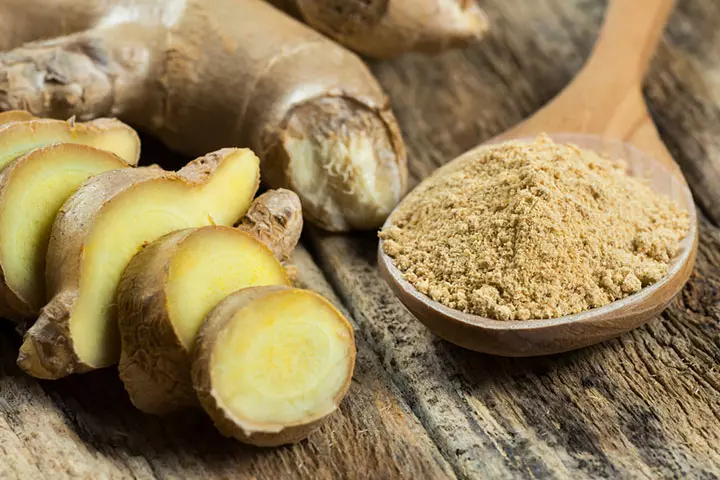
This is another common ingredient you should include in your post-pregnancy diet as it contains vitamins B6 and E, magnesium, iron, potassium, manganese, and selenium. It is known for its anti-inflammatory uses (9). You can add a pinch of it to your meals. and chutneys.
16. Carom seeds
Carom seeds are known to stimulate milk production and aid in the contraction of the uterus. They also relieve pain from indigestion and gas. They have antibacterial, antifungal, antioxidant, and antiseptic properties. You can toss a few carom seeds in your food as a seasoning or drink water boiled with carom seeds.
17. Finger millets
This is an excellent source of iron and calcium. It will help you renew the strength you lost during childbirth. If you are allergic to dairy products, this can be the best alternative. You can make ragi malt, roti, idli, dosa, and halwa from it.
18. Almonds
It is another ideal food to include in your post-pregnancy diet. The rich carbohydrates, fiber, vitamins B12, E, magnesium, manganese, copper, zinc, calcium, and potassium present in these nuts help you recover from delivery. You can add them to milk, or any foods that you eat. They are a great munching snack too.
19. Fenugreek seeds
Fenugreek seeds are a rich source of calcium, iron, vitamins, and minerals. They are known to relieve your joint and back pains though little evidence is found in its support. You can add a few seeds in the daily dishes that you make, or dry fry and powder them, and mix in your food. , roti, vegetables, and meats. You can also consider taking fenugreek tea, a favorite drink for nursing mothers.
20. Sesame seeds

The abundant iron, calcium, magnesium, copper, and phosphorus levels in sesame seeds make them suitable for a post-pregnancy diet. They help in replenishing your body system with essential minerals and regulating bowel movements. They can be added to chutneys, curries, and sweets.
21. Avocados
These are abundant with nutrients that are essential for a post-pregnancy diet. They are rich in antioxidants, folate, potassium, carotenoids, and fiber. Additionally, they are low on glycemic index and have no saturated fats or empty calories. Therefore, they can provide all the beneficial nutrients needed after delivery. Include avocados in your postpartum meal plan on toast, in salads, blended into smoothies, or in dips (10).
22. Sweet Potatoes
Sweet potatoes are a wholesome source of vitamin A, a crucial nutrient responsible for bone growth, vision, and proper immune function. They also provide a good amount of potassium. Hence, including them in your post-pregnancy diet can offer many benefits (11). Sweet potatoes are commonly enjoyed in various dishes such as salads, soups, stews, and cupcakes.
 Quick fact
Quick factThese are the superfoods that you can add to your post-pregnancy diet. For a customized diet plan, you may consult a doctor or a dietitian.
However, before you include any food in your diet, you need to consider your health requirements and those of your baby too. Tweak your plan in consultation with your dietitian to meet your specific needs.
What Not To Eat After Delivery?
Most foods are safe for new breastfeeding mothers. But remember, whatever you eat, you pass on to your baby through breast milk. That and your gut instinct will tell you what not to eat after delivery. Here are some major no-no foods that you need to steer clear of when planning the after-pregnancy diet plan (9).
1. Spicy foods
Spicy foods quickly pass on to your baby and affect her intestines and blood flow. The baby’s digestive tract and spicy food can make her irritated and fussy. So, avoid spicy foods for about six months post-delivery (12).
2. Oily food
Oily foods can pile up fat in your body, making it difficult for you to regain your original shape. Do not eat sweets, butter, or other fatty foods. Rather, choose healthy fats such as walnuts, soybeans, flax seeds (omega-3 fatty acids), vegetable oils and seeds (omega-6 fatty acids), olive, peanut, and canola oils (monosaturated fats).
3. Gas-producing foods
Steer clear of foods that produce gas, belching, and acidity as they will affect your baby too. Also avoid soft cheese, oats, beans, ice cream and carbonated drinks.
4. Avoid foods causing allergies
Newborns are vulnerable to allergies or irritants that come with breast milk. If you find your little one experiencing them, you may have to stop the food that you ate lately. Check with your healthcare provider.
Follow the diet or a food journal suggested by the doctor. It will include what you should eat, when, and the time of breastfeeding. You will also find a column to note any reactions or fussiness your baby might have suffered post-feeding.
5. Eliminate CAN

Limit Caffeine to two cups a day, and eliminate Alcohol, and Nicotine entirely from your diet (13)(14). If you think that your pregnancy is done, think again. As long as you breastfeed, your baby is still part of your body. CAN will lead to dehydration, diarrhea, and colic in the baby.
6. Medications
Do not take any medications without consulting your healthcare provider or the baby’s pediatrician. The medications and its compounds will pass to your baby through breast milk. Even if you want to start a new multi-vitamin or antacid, ask your doctor to prescribe a breastfeeding-friendly one (15).
This list of what to include and what not to include in your diet applies for at least three months after delivery.
Healthy Eating Habits Post Pregnancy
When you focus on healthy eating over the long term, it will not only help you in weight loss but also keep your body healthy. Here are the five eating habits that can make a great difference in your progress:
- Eat whenever you are hungry
- Eat moderate amounts and slowly
- Eat healthy fats
- Include protein in every meal
- Include fruits and vegetables in every meal
Although all these dos and don’ts seem pretty overwhelming, keep in mind that they are in the best interests of your body, and most importantly, your baby’s health. At this stage, a healthy and happy mum means a healthy and happy baby! Your body needs to return to its normal, healthy state because mommyhood takes a huge toll on physical and emotional health. Along with healthy eating, a daily routine of postnatal exercises is important to return to a pre-pregnancy state.
After Pregnancy Diet Plan
A postpartum meal planning that includes healthy snacking options and nutritionally fulfilling meals can aid in postpartum weight loss and promote overall maternal health.
Abigail Taft, a mother and a functional dietician, shares her postpartum diet plan to lose weight healthily. She says, “My balanced plate method included ½ plate non-starchy vegetables, ¼ of your plate a protein (about the size of your palm), ¼ of your plate a fibrous complex carbohydrate/starch, 100-200 calories of healthy fat. I typically follow this template closely for lunch and dinner. For breakfast, I try to focus on breaking my fast with protein and/or fat and fiber. I love breakfast bowls and smoothies (i).”
Here is a sample diet plan for a week that gives you an idea of how you can include superfoods in your diet.
| Breakfast | Snack | Lunch | Snack | Dinner | |
|---|---|---|---|---|---|
| Sunday | Sliced fruit, sandwich | Wholegrain crackers with peanut butter | Wrap sandwich with vegetarian/ non- veg protein source | Veggies and hummus | Shredded chicken salad |
| Monday | Cereal with skimmed milk, fruit | Trail mix | Veggie pasta | Graham crackers with peanut butter | Shrimp salad and parfait |
| Tuesday | Banana sandwich with peanut butter | Apple and string cheese | Shredded chicken salad | Veggies and hummus | Rice and vegetables |
| Wednesday | Cereal with skim milk and fruit | Fruit smoothie | Wrap sandwich | Trail mix | Frozen entrees |
| Thursday | Toast, hard-boiled egg, and grapefruit | Apple, string cheese | Vegetable pasta | Fruit smoothie | Shredded chicken salad |
| Friday | Cereal with skimmed milk, fruit | Trail mix | Bread with soup and fruit cup | Graham crackers with peanut butter | Wrap sandwich |
| Saturday | Banana sandwich with peanut butter | Fruit smoothie | Frozen entrees | Veggies and hummus | Rice and vegetables |
Given below are some sample foods you may include in your every day diet menu –
For breakfast:
- A glass full of water, first thing in the morning
- Omelet along with one slice of whole grain toast (or)
- Flaxseed porridge with unsweetened rice, one tablespoon of flaxseed oil, half teaspoon of cinnamon, and coconut milk (or)
- Berry smoothie made of natural yogurt, handful of berries, and two tablespoons of nuts and seeds
For lunch:
- Large garden salad with grilled chicken (or)
- Lentil quinoa salad along with spinach, tomatoes, and some herbs (or)
- Baked sweet potato along with cottage cheese, colorful vegetables, and two to three tablespoon butter
For dinner:
- Brown rice served with stir-fry beef (or)
- Steamed salmon, mashed sweet potato with sauteed green leafy veggies (or)
- Tuscan bean soup along with brown pasta, cannellini beans, onions, tomatoes, vegetable stock, and seasoning
As snacks:
- Two oatcakes and hummus (or)
- Fruit salad topped with seeds and nuts like almonds (or)
- Natural yogurt topped with sunflower or pumpkin seeds (or)
- Banana along with nuts
So, eat well while you breastfeed to gain enough strength for the next phases of motherhood challenges. However, remember that it is important to consult with a healthcare provider or a registered dietitian for personalized recommendations and lactation support to ensure optimal postpartum nutrition and a healthy body after baby.
Frequently Asked Questions
Can I eat desi ghee after C-section?
Desi ghee is one such traditionally advised food by elders, irrespective of whether you have a vaginal or C-section delivery. Including ghee in your diet after C-section delivery offers strength, and it is rich in calcium. However, you should take it in moderation as eating too much would add to your weight.
What are the benefits of eating panjiri after delivery?
Panjiri is a traditional Indian staple from Punjab, consumed as a nutritional supplement. It is also known for its healing properties for new mothers and is made of whole wheat flour, sugar, ghee, dried fruits, and herbal gums. When you eat it right after delivery, it can help you regain strength as it provides you with all the essential nutrients required to breastfeed.
It is also known to stimulate breast milk flow, regain uterus shape, improve immunity, and keep the body warm. However, there are no studies to confirm the goodness of this food.
3. When can I start a diet after giving birth?
It is normally advised that you wait at least six weeks after giving birth before starting a diet because you are breastfeeding, and your body needs time to recover from the physical demands of pregnancy and childbirth (16).
4. How do I lose my post-pregnancy belly?
When planning to lose your pregnancy belly after childbirth, you should first take ample rest and then, exercise regularly, eat a healthy diet, and stay hydrated.
5. Is curd good in post pregnancy?
Florida-based registered dietitian and nutritionist Jesse Feder opines, “Curd is highly recommended post-pregnancy due to its probiotic content, which supports digestive health, and its high levels of calcium and protein. It can help maintain gut health, enhance immunity, and provide necessary nutrients for bone health and tissue repair.”
Now that your baby is born, you can resume eating some of the foods you avoided during your pregnancy. However, incorporate all nutrient-rich foods in your post-pregnancy diet while nursing and in the postpartum recovery phase. Eat a healthy diet after delivery, including legumes, pulses, green vegetables, and citrus fruits, and do not forget to drink plenty of water. Moreover, you should continue avoiding certain foods, such as spicy and oily foods, caffeine, and foods that you know may cause you allergies. You may speak to a dietician who can design a pregnancy diet plan in case of doubts.
Infographic: Healthy Eating Habits To Follow After Childbirth
New mothers must pay attention to their food after delivery to return to their pre-pregnancy weight and speed up the healing process. Additionally, healthy eating helps digest the nutrients required for nursing. So, check out the infographic below to explore healthy eating habits you should consider following.

Illustration: Momjunction Design Team
Illustration: Post Pregnancy Diet: 20 Must-have Foods For New Moms

Image: Stable Diffusion/MomJunction Design Team
Discover the most important tip for increasing postpartum recovery. Get professional advice from experts on how to nurture your body and mind to promote a good recovery period.
Personal Experience: Source
MomJunction articles include first-hand experiences to provide you with better insights through real-life narratives. Here are the sources of personal accounts referenced in this article.
(i) A Dietitian’s Postpartum Weight Loss Plan;https://www.abigailtaftnutrition.com/post/a-dietitian-s-post-partum-weight-loss-plan
References
- Nutritional Needs During Pregnancy and Breastfeeding.
https://ohioline.osu.edu/factsheet/HYG-5573# - Nutrition and Exercise.
https://www.urmc.rochester.edu/ob-gyn/obstetrics/after-delivery/nutrition-exercise - Calcium.
https://kidshealth.org/en/parents/calcium.html - Updating Advice on Eating Seafood.
https://pubmed.ncbi.nlm.nih.gov/15927927/ - Folic Acid for a Healthy Baby.
https://www.stanfordchildrens.org/en/topic/default?id=folic-acid-for-a-healthy-baby-134-2 - Oats.
https://nutritionsource.hsph.harvard.edu/food-features/oats/ - G Mahmudi et. al.; (2015); The Impact of Turmeric Cream on Healing of Caesarean Scar.
https://www.ncbi.nlm.nih.gov/pmc/articles/PMC4909076/ - A. Sangwan et. al.; (2014); Nutritional composition of ginger powder prepared using various drying methods.
https://www.ncbi.nlm.nih.gov/pmc/articles/PMC4152547/ - Goun Jeong et. al.; (2017); Maternal food restrictions during breastfeeding.
https://www.ncbi.nlm.nih.gov/pmc/articles/PMC5383635/ - Kevin B. Comerford; (2016); The Role of Avocados in Maternal Diets during the Periconceptional Period Pregnancy and Lactation.
https://www.ncbi.nlm.nih.gov/pmc/articles/PMC4882725/ - Top 10 Superfoods For Breastfeeding Moms.
https://news.sanfordhealth.org/womens/top-10-breastfeeding-superfoods/ - Diet for Breastfeeding Mothers.
https://www.chop.edu/centers-programs/breastfeeding-and-lactation-program/diet-breastfeeding-mothers - WILL CAFFEINE AFFECT MY BABY?
https://llli.org/breastfeeding-info/caffeine/ - Y. Bhandari, et al.; (2024); Tobacco and alcohol use among lactating women and its association with child nutrition in India: findings from National Family Health Survey 2019–2021.
https://www.sciencedirect.com/science/article/pii/S0033350624003159 - Maternal Diet and Breastfeeding.
https://www.cdc.gov/breastfeeding-special-circumstances/hcp/diet-micronutrients/maternal-diet.html?CDC_AAref_Val=https://www.cdc.gov/breastfeeding/breastfeeding-special-circumstances/diet-and-micronutrients/maternal-diet.html - Losing weight after pregnancy.
https://medlineplus.gov/ency/patientinstructions/000586.htm - How much arsenic is in your rice?
https://www.consumerreports.org/cro/magazine/2015/01/how-much-arsenic-is-in-your-rice/index.htm - Vicdalia Aniela Acciari et al.; (2017); Listeria monocytogenes in Smoked Salmon and Other Smoked Fish at Retail in Italy: Frequency of Contamination and Strain Characterization in Products from Different Manufacturers.
https://pubmed.ncbi.nlm.nih.gov/28221976/
Community Experiences
Join the conversation and become a part of our nurturing community! Share your stories, experiences, and insights to connect with fellow parents.
Read full bio of Jyoti Benjamin
- Vivian Yu is a Melbourne-based dietitian nutritionist and the co-founder of Gym Near Me and One Body Personal Training. She did her graduation and post-graduation in nutrition and dietetics from Monash University and has more than six years experience in the field.
 Vivian Yu is a Melbourne-based dietitian nutritionist and the co-founder of Gym Near Me and One Body Personal Training. She did her graduation and post-graduation in nutrition and dietetics from Monash University and has more than six years experience in the field.
Vivian Yu is a Melbourne-based dietitian nutritionist and the co-founder of Gym Near Me and One Body Personal Training. She did her graduation and post-graduation in nutrition and dietetics from Monash University and has more than six years experience in the field. - Jesse Feder did his Bachelor of Science in Applied Physiology and Kinesiology with a specialty in Exercises Physiology from the University of Florida. A certified personal trainer by the American College of Sports Medicine (ACSM-CPT) and a Certified Strength and Conditioning Specialist by the National Strength and Conditioning Association (NSCA-CSCS), he has seven years of experience in training people and providing nutrition guidance. Jesse holds a masters degree in Dietetics and Nutrition from Florida International University and is a Licensed and Registered Dietitian (LDN/RDN).
 Jesse Feder did his Bachelor of Science in Applied Physiology and Kinesiology with a specialty in Exercises Physiology from the University of Florida. A certified personal trainer by the American College of Sports Medicine (ACSM-CPT) and a Certified Strength and Conditioning Specialist by the National Strength and Conditioning Association (NSCA-CSCS), he has seven years of experience in training people and providing nutrition guidance. Jesse holds a masters degree in Dietetics and Nutrition from Florida International University and is a Licensed and Registered Dietitian (LDN/RDN).
Jesse Feder did his Bachelor of Science in Applied Physiology and Kinesiology with a specialty in Exercises Physiology from the University of Florida. A certified personal trainer by the American College of Sports Medicine (ACSM-CPT) and a Certified Strength and Conditioning Specialist by the National Strength and Conditioning Association (NSCA-CSCS), he has seven years of experience in training people and providing nutrition guidance. Jesse holds a masters degree in Dietetics and Nutrition from Florida International University and is a Licensed and Registered Dietitian (LDN/RDN).
Read full bio of Rebecca Malachi
Read full bio of Swati Patwal
Read full bio of Dr. Joyani Das





